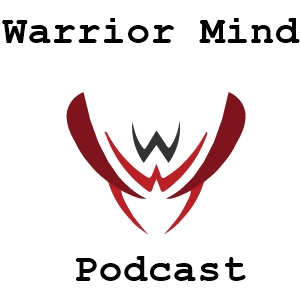Elements of a Personal Development Plan: Warrior Mind Podcast #350

Over four years and going strong! With over 500,000 downloads from over 9 countries and 5 continents’…. this is the Warrior Mind Podcast.
this is the Warrior Mind Podcast.
In this episode of the Warrior Mind Podcast I’m going to go over the essential elements of a personal development plan to help you achieve peak performance.
There are a number of things that you need to include in a personal development plan.
- A clear vision of where you want to be and why
It is really helpful to think about where you want to be and what you want to do. It can be useful to think in terms of different lengths of time: for example, one month, six months, one year, five years.
It is also helpful to make your vision as detailed as possible, across all spheres of life: career, where you want to live, your hobbies and even relationships. The more detail you can include, right down to how you will feel about it, the easier it will be to hold onto your vision when times are hard.
- A good understanding of the skills you need to develop to achieve your vision
The next step to your personal development plan is to think about what skills you need to develop, and why this is important to achieving your vision.
For example:
- Do you need certain skills to get a particular job, or to advance in your chosen career?
- Are you planning to live abroad, and therefore need to develop your language skills?
- Are you struggling to manage a particular situation, and need new skills to help?
- Have you been told that you lack particular skills and need to develop them to work effectively with others, or on your own?
It is important to make sure that the skills you are targeting are clearly linked to a purpose, which is in turn linked to your vision. Without this clarity, your personal development efforts may fail. In particular, you may not concentrate on the right skills, or be fully aware of your timescale.
Enjoy this podcast on elements of a personal development plan
Podcast: Play in new window | Download (12.6MB)
Subscribe: RSS
- A clear idea of the standard you need to achieve, and how different that is from your current standard
The difference between where you are now and where you need to be tells you the magnitude of the task. It therefore affects how long it will take, and also how much effort you need to put in.
For example, if you are planning to move abroad in a year’s time, or go traveling, you may need to develop your language skills. But:
If you have already lived in that country for a period and speak the language well, you may not need to do more than keep your language skills up via listening to foreign radio.
If, however, you have never learned the language, and you are starting from scratch, you may need some intensive language tuition, or even an immersion course, to ensure that your skills develop quickly enough.
- A level of priority for each area
You cannot do everything at once.
Instead, you need to prioritize. One very good way to do this is to list all your areas for development, then ask yourself two questions about each one, answering on a scale of one to five:
- How important is this to me?
- How essential is it to develop it now?
Add together (or multiply) the scores for the two questions for each area, and you will have a much better idea of which areas to focus on first, because they are either more important, or they are more time-critical.
Leave the other areas for a later date: next year, or even a few years’ time.
- A detailed idea of how to get from where you are now for each skills or area, to where you want to be
It sounds obvious, but you need to know how you are going to get from (a) to (b): where you are now, to where you want to be. For example, are you going to enroll on some kind of course? Learn online, perhaps using a website like this one?
Just as with your vision, it can be helpful to break this down by time: in a month/six months/a year, what will you have done on the way to your ultimate goals? This makes it easier to check your progress and keep yourself on track.
One Step at a Time
When you first start thinking about personal development, it can seem as if you know nothing, and have no skills. You may find this point rather overwhelming! But it is important to bear two things in mind:
You do have skills. You have been learning and developing all your life, and you already have many, many skills. Our page on Transferable Skills may help you to understand this better.
You don’t have to improve everything all at once. In fact, you’re much better off not trying to do that. Focus on just one or two areas at a time, and you will see much larger improvements, and also feel less overwhelmed.
There is a reason why personal development is sometimes called ‘lifelong learning’: there is no time limit on it.
Request an Introductory Consultation right now if you wish to learn additional information on expectations, confidence and acceptance.
Subscribe to the Warrior Mind Podcast HERE.



